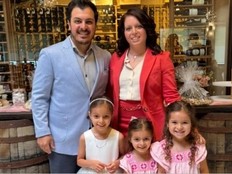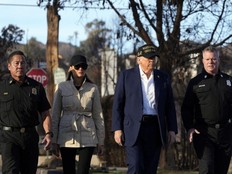Community groups sign letter opposing proposed 'bubble zone' bylaw
Proposed bylaw would ban protests at 'vulnerable institutions' like schools, senior's homes and places-of-worship – all popular targets for anti-Israel activists

Article content
OTTAWA – Efforts by the City of Toronto to protect schools, seniors’ homes and places-of-worship from disruptive protests are being opposed by city activists.
The Toronto Sun intercepted a letter distributed among city non-profit groups and community activists opposing a proposed “bubble zone” bylaw declaring “vulnerable institutions” no-go zones for protesters.
The effort, organized by Social Planning Toronto’s Israt Ahmed, seeks like-minded activists to sign a letter to Toronto Mayor Olivia Chow opposing the bylaw.
“If passed, we are concerned that the ‘bubble zone’ bylaw could limit our Charter-protected rights to freedom of expression and peaceful assembly, silence marginalized communities’ voices in particular, lead to police overreach and inadequately respond to hate,” Ahmed wrote in her letter.
Toronto’s Jewish community have endured years of hateful protests and rallies since the Oct. 7 2023 Hamas terror attacks.
Anti-Israel protestors routinely hold rallies at Jewish schools, community centres and synagogues, calling for the destruction of Israel and harassing members of Toronto’s Jewish community with hateful signs and slogans.
Neighbourhoods, private homes and Jewish-owned businesses have also been targeted by protestors, marchers and vandals – prompting similar bylaws in cities that include Calgary, Oakville and Vaughan.
Invitations for comment to Ahmed and Social Planning Toronto went unreturned, and an online form soliciting signatures was removed shortly after the Toronto Sun reached out.
Inquires to those who signed the letter – including YWCA Toronto, Fairlawn United Church, CUPE Ontario and Progress Toronto – likewise received no response.
The letter had 49 signatures before it was removed.
“Vulnerable institutions” are popular targets for anti-Israel activists.
A Jewish girl’s school in the city’s north end was shot at three times in 2024, while earlier this month protestors targeted Montreal’s Donald Berman Yaldei Developmental Center – a centre caring for autistic and severely disabled children – with activists chanting “Zionists, fascists, it’s you the terrorists!” at families and staff.
Groups refusing to sign the letter include Autistics for Autistics, a Toronto-based autism advocacy group.
“I support people being able to visit the hospital, church or other vital community institutions in peace,” said co-founder Anne Borden King.
“It’s a sensory overwhelm to be blocked and yelled at. It’s also a physical barrier for people with physical disabilities.”
She points out that few of the signatories publicly opposed measures to limit pandemic-era hospital protests.
“You can’t help but think that maybe they just want to go to synagogues and yell at Jews,” she said.
Reports from Toronto Police this week show officers laid 84% more hate crime charges so far this year compared to 2024.
And despite making up less than 4% of the city’s population, Jews were the target of 40% of all reported hate crimes last year.
Michelle Stock, Ontario vice-president with the Centre for Israel and Jewish Affairs (CIJA,) told the Sun protesting at schools, hospitals or places-of-worship only serves one purpose: intimidation.
“This is not a matter of free expression – these acts are calculated attempts to harass, intimidate, and instil fear,” she said. “They are not only a direct threat to Jewish community members but a danger to the broader safety, civility, and social fabric of our city.”
She called on governments to do more to end hateful protests masquerading as legitimate protest.
“It is a basic obligation in any society that claims to value human rights, inclusion, and public safety,” she said.
RECOMMENDED VIDEO
Ahmed’s assertions that such bylaws violate the Charter hold no water, says Ottawa-based Lawyer Michael Polowin – pointing out that protest venues aren’t constitutionally-protected.
“Those who are saying that bubble zone legislation interferes with the right of freedom of expression are simply wrong,” he said, pointing to similar legislation restricting protests near abortion clinics, and the aforementioned COVID-era hospital protests bans.
“This has been done before, there is nothing new here,” Polowin added.
In a statement sent to the Toronto Sun after this story went to press, Social Planning Toronto Executive Director Jin Huh says Ahmed had nothing to do with the letter, claiming it was instead drafted by her.
Acknowledging they received the Sun’s inquiry for comment but chose not to reply, Huh insisted on Friday that the letter was taken offline because the deadline for signatures had passed — and not because of the Sun’s inquiries.
Huh says the full text of the letter will be posted online ahead of next week’s Toronto City Council meeting.

















Postmedia is committed to maintaining a lively but civil forum for discussion. Please keep comments relevant and respectful. Comments may take up to an hour to appear on the site. You will receive an email if there is a reply to your comment, an update to a thread you follow or if a user you follow comments. Visit our Community Guidelines for more information.